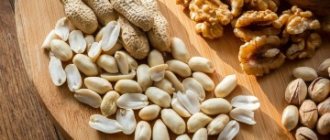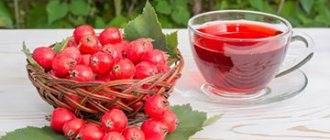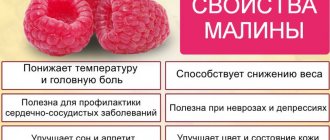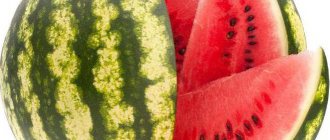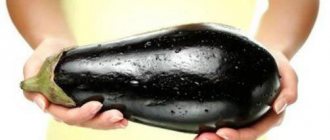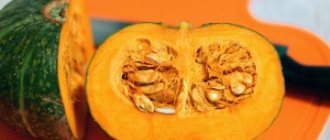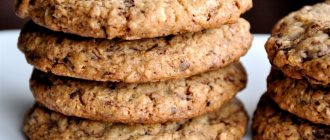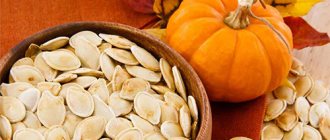What are the benefits of nuts in the diet of a nursing mother?
An allergic reaction to this product is a contraindication for its use by a nursing woman.
Walnuts are rich in vitamins, minerals and trace elements. It helps calm the baby's nervous system during breastfeeding and improve sleep. It has the following effect on a nursing woman: reduces fatigue, improves memory, concentration and normalizes sleep.
It is saturated:
- beta-carotene;
- vitamins A, E, B, C, PP, K, H and others;
- microelements (iron, cobalt, magnesium, calcium, potassium, etc.);
- essential amino acids;
- proteins, fats (they make up 90%);
- fiber (it improves intestinal motility);
- tannins (they give the kernels a tart taste);
- essential oils (contains 0.03%).
It is these oils that contribute to the development of allergic reactions in a number of children. Therefore, if there is an allergic reaction to this product, it is not recommended for a nursing woman to use it.
This fruit also has: bactericidal, wound-healing, immunostimulating, anti-inflammatory effects.
Does country of origin matter?
Walnut has more than twenty varieties. In Russia, the most popular are “Ideal” and “Giant”.
The important fact is that its chemical composition is influenced by: environmental factors, climate and weather conditions. So, for example, the percentage of fat content is determined higher in the western, eastern and southeastern zones of its distribution.
The country in which it was grown is of great importance, since the composition, content of proteins, fats and carbohydrates will differ.
For example, the fat content of nuts grown in Ukraine is about 69%, in Turkey - 67%, in France - 56 - 60%, Kyrgyzstan - 73%, Moldova - 62%.
Nut kernels grown in France contain more water, fiber, and less nitrogenous protein substances than those from Kyrgyzstan.
Beneficial properties of nut oil
By the way, in the store you can buy natural nut butter, which is made from walnuts. It is best to use it in food, seasoning salads or dishes based on various cereals. It is not advisable to fry in this oil, especially since fried food is generally contraindicated for a nursing mother.
Natural nut oil has a positive effect on the functioning of the gastrointestinal tract of mother and child.
Nut oil is made by pressing, so the concentration of vitamins and nutrients in it is preserved. The result of its use can be twofold:
- During the postpartum period, many mothers have problems with bowel movements. Consuming walnut oil allows you to bring everything back to normal.
- For a baby, consuming nut butter will be a good preventative against constipation.
To whom and in what quantities are walnuts allowed?
A nursing woman, in the absence of contraindications, is allowed to use them, but in limited quantities. You can eat no more than 5–7 pieces per day.
A few kernels of this nut eaten by children under one year old can cause serious harm to the baby, due to the structural features of the pancreas at this age.
People of almost all ages are allowed to eat them. They are especially useful:
- during pregnancy;
- breastfeeding (for mother and child);
- when planning pregnancy;
- in preschool, school, puberty.
It is recommended for children to use it no earlier than from two to three years of age (in limited quantities) no more than 4-5 pieces per day.
Benefits and harms of the product
For mother
This product contains a lot of:
- vitamins;
- minerals;
- healthy fats and other substances.
All of them:
- strengthen the immune system;
- improve memory;
- give strength;
- strengthen hair and nails;
- improve skin condition.
In addition, walnuts contain healthy fats , which make breast milk more nutritious and improve its composition.
However, you should not overuse these nuts during breastfeeding. After all, if the mother is allergic to any product, then it can also manifest itself to nuts.
Important!
If the mother has problems with the gastrointestinal tract, skin rashes and allergic reactions during breastfeeding, walnuts should be avoided.
For a child
The only way a walnut can reach a baby is through mother's milk. If the mother eats nuts in moderation, the child receives all the beneficial substances from them, which affects the improvement of the baby’s general condition.
But, again, you need to carefully monitor the child’s reaction. He may develop severe allergies that he will live with for the rest of his life. Therefore, if you notice redness on your baby’s skin, avoid all foods containing allergens, including nuts.
How to choose the right walnuts and how to store them?
Tips for choosing them are as follows.
- It is better to buy unshelled and large nuts. When choosing them, you must pay attention to the shell (it should not be cracked, have black spots or damage).
If the volume occupied by the kernel is more than 50 percent, it is a good nut.
- They must be dry (moisture will cause them to rot).
- When you tap them against each other, a loud knock should be heard (a dull knock is a sign of a damaged kernel).
- The shell should be light brown and free of plaque.
- It is recommended to choose heavier nuts, as the kernel may be dry.
- When choosing peeled kernels, their surface should not be oily (if it is, they were stored for a long time and incorrectly). It should have a golden hue.
- When shaking them in the shell, no knocks should be heard (their presence indicates a dried kernel).
- When purchasing it in packaging, you need to pay attention to the packaging itself, the presence of defects on it, and the expiration date.
The packaging should not be transparent. Special “windows” should be left on it to assess the quality of the product.
It is recommended to store them for one year unpeeled and one to two weeks peeled, at room temperature, and in case of freezing - one year.
It is better to store peeled kernels in the refrigerator in a glass or metal container. The most favorable temperature for this is from +10 to – 5 °C, and humidity – up to 60%. Direct sunlight is not recommended, so if they are in shell, it is recommended to put them in a box or net and store them in a cool, dark place.
Every one to two months it is necessary to inspect them for the presence of mold on the shells; if present, the moldy nuts are thrown away.
Folk recipes
In folk medicine, there are some recipes that help increase the fat content of breast milk, especially in the first days after the birth of a child. Let's list some of them.
- Nut milk. Doctors recommend this product to young mothers even in maternity wards. The recipe is as follows: a handful of walnuts is poured with boiled milk, then the composition is placed in a thermos and left for a day. You need to drink the tincture throughout the day.
- Honey-nut jelly. To prepare it, pour a glass of chopped kernels with warm honey, then add two tablespoons of hot butter and a few grams of gelatin. Infuse the product for several hours. You need to take the prepared jelly in small quantities - no more than a couple of teaspoons at a time.
- Carrot and nut puree. The crushed kernels are mixed with grated carrots. It is advisable to eat ½ teaspoon three times a day. Store the puree in the refrigerator in a hermetically sealed container.
Several recipes with walnuts
Nursing mothers are not recommended to consume nuts until the baby is three months old.
Unusual mashed potatoes
Compound:
- 1 onion;
- 750 g potatoes;
- 25 g butter;
- 80 g nut kernels;
- 75 g cream;
- salt to taste.
Preparation:
- Fry the onion, cut into thin rings, in a frying pan in butter (15 grams) until golden brown;
- Grind the nuts in a blender;
- Boil the peeled potatoes in salted water;
- drain the liquid by ¼ part;
- mash the potatoes, then stir in the remaining butter, warm cream, fried onions and walnuts;
- add salt if necessary.
Delicious salad with nuts
Compound:
- meat – 200 g;
- nut kernels – 8-10 pieces;
- beets – 1 pc.;
- cheese – 30 g;
- egg – 1 pc.;
- sour cream – 50 g;
- salt to taste.
Cooking method:
- Boil the beets, meat, and eggs until tender.
- Cool, peel and cut all these ingredients, including the cheese, into cubes;
- Grind the nuts in a blender;
- Mix all ingredients, season with sour cream and add salt to taste.
Contraindications
- calorie content - 654 kcal per hundred grams. Pregnancy and breastfeeding contribute to a woman's weight gain. If you are overweight, it is better to limit such a high-calorie product;
- an allergy to walnuts, that is, hypersensitivity of the immune system. This reaction is possible due to the presence of essential oils in the composition. The presence of tannins in nuts is indicated by their slightly astringent taste. They, in turn, can cause bloating in the baby.
An allergic reaction manifests itself:
- itching, redness and rash on the surface of the skin (usually the cheeks);
- respiratory symptoms (stuffiness, lacrimation, coughing and sneezing);
- nausea, which is difficult to determine in a baby. He will be capricious and refuse to eat;
- diarrhea, colic;
- swelling of the nasopharynx, face:
- anaphylactic reaction.
Signs may appear separately or several together. In this case, the response of the immune system may not occur immediately, but after 10-14 days. It is necessary to properly introduce walnuts into the diet.
It is important to consider the presence of allergies in the mother. General contraindications for eating walnuts are skin diseases, diseases of the pancreas and gastrointestinal tract.
Interesting facts about nuts
- They are believed to improve the quality of milk, making it fattier and more nutritious.
- Walnuts received this name because they originated from Asia, and it was the Greeks who began to import them to Russia.
- Their kernels can replace meat for vegetarians, as they contain a large amount of protein.
- Five kernels of this nut contain a daily dosage of vitamin C.
- Many people consider peanuts to be a nut, but this is not true, since they belong to the legume family.
- Avicenna also described the healing properties of pine nuts.
- Coconut is the largest nut.
- Nuts are classified as antidepressant products.
Rules of use
The baby's digestive system adapts to new conditions after reaching 2-3 months. This age is called optimal for mother to start eating walnuts. You should give them up in the first month. If the baby’s parents have food allergies, then it is better to exclude them from the mother’s diet until the child reaches one year.
How to introduce it into the diet
Any new product for breastfeeding is introduced gradually. You need to start with half a whole walnut. After feeding, monitor the baby’s condition for 24 hours. If there are no changes in behavior, you can eat the same amount every other day. If in this case there was no negative reaction, then the amount eaten can be increased to 5-6 pieces. in a day.
Attention! Excessive consumption can lead to severe allergies or digestive problems in the baby!
You can start using walnut oil by adding it to salads. Or drinking on an empty stomach. It has a softer effect.
Heat treatment
It is advisable to use raw walnuts in your diet when breastfeeding. After heat treatment, they lose some of their beneficial qualities and become saturated with carcinogens.
You should not eat walnuts in baked goods or chocolate bars. Nuts themselves are high in calories and are considered allergens, and when combined with chocolate or other sweets, the negative impact doubles.
Other nuts during lactation
Pine nuts during breastfeeding are considered the safest for babies, because they are less likely than others to contribute to the development of an allergic reaction in the baby. They calm the baby, normalize sleep and appetite, and eliminate underweight in premature and low birth weight babies. But if they are abused, allergic reactions, colic and bloating can occur.
Hazelnuts and peanuts are the strongest allergens during breastfeeding. The most dangerous manifestation of their use is anaphylactic shock. In addition, peanuts can cause severe intoxication (as they often contain pathological fungi).
What's the "cons", stop - allergies
Just as every medicine has contraindications, this method also has its “buts”:
- It should be remembered that richer milk may stagnate. And cause blockage of the mammary gland ducts. What will lead to
- Animal milk and nuts are included in the group of so-called natural allergens (although walnuts are the least dangerous of all). Both mother and baby may experience all sorts of allergic reactions, such as:
- Stomach upset;
- Colic;
- Bloating;
- Changes in the skin (rash, redness);
- Inflammatory processes;
- Edema.
In this case, it is advisable to consult a pediatrician and it is better to avoid the use of such products.
In general, everything in our world is individual. Some eat chicken eggs and fish with pleasure all their lives, but they end up wasting them on meat, others are omnivores, and some cannot even look at a good half of the existing food. Therefore, the main thing is a sense of proportion.
